Why is hydration important?
Water makes up more than half of our body weight, and is vital to every cell and function in our bodies. Dehydration happens when we lose more fluid than we can take in, and if you’re active, your hydration needs are even greater—especially in the summer. As a runner, dehydration can take a toll on your performance and can lead to some pretty unpleasant workouts. Symptoms of dehydration are wide ranging, from muscle fatigue and headache, to dizziness, nausea and chills, and—in the most severe cases requiring immediate medical attention—a racing heartrate, cessation of sweating and loss of consciousness.
Good news is that there are plenty of proactive steps we can take to ensure summer training is fun and safe:
Goal #1: Show up well-hydrated
Pounding back a big bottle of water as you step out the door for a run is a lousy strategy for preventing dehydration. Regularly consuming water is the smartest strategy. In addition to water, teas and coffee (and no, caffeine is not dehydrating), consume plenty of fruits and vegetables to contribute to overall hydration and health.
How do I know if I’m well-hydrated?
Your pee tells the truth! It will be light yellow to almost clear if you’re well-hydrated. Pee that is darker than apple juice or cloudy could be an indicator of dehydration.
Goal #2: Stay hydrated
While you might be able to get by without water on a short run in the fall, during hot and humid summer days, you must carry water with you—especially if you’re running longer than an hour. Charm City Run has a huge variety of hand-held bottles, fuel belts and hydration vests that make it easy to carry water on the go.
Don’t let anyone tell you you’re not special
Each of us is unique, so there is no standard amount of water that all runners should consume. Your sweat rate is different than your running partner’s, and that rate may also be impacted by your level of effort and the external temperature.
Find your approximate sweat rate to determine how much water to consume on the run: Weigh yourself without clothing before and then immediately after a run to measure how much water you’ve lost. If you’ve lost two pounds (32 ounces) over the course of one hour, plan to drink 32 ounces of water over an hour at your next run. Aim to lose less than 2% of your body weight. If you’re 3% or more down, work on goals #1 and 2.
What’s the deal with electrolytes?
When we sweat, in addition to water, we also excrete electrolytes, namely sodium (salt), potassium and magnesium and calcium. Electrolytes are required for muscle contraction, so a loss of electrolytes can result in a loss of performance. Recreational runners and walkers are not at risk during exercise under an hour and should be fine with just water.
Athletes who train at a hard effort benefit from including electrolyte-rich foods in their diet, including salt, which helps us to retain water. There’s a reason why we find salty snacks like chips and pretzels at the end of long races! Magnesium is found in leafy greens and many whole nuts and seeds, and potassium is plentiful in beets, bananas and sweet potatoes.
Endurance athletes training over a period of several hours may also benefit from consuming electrolyte on the run, especially in summer months, but it requires experimentation to find what works best for you. The flavor found in many electrolyte drinks may also make them easier to drink than plain water, promoting better hydration for runners who don’t like to drink straight water.
If your doctor has prescribed a low sodium diet due to high blood pressure, talk to your doctor before consuming electrolyte or salt supplements.
I get cramps in my legs an hour or so into my run. Is that caused by a loss of electrolytes?
The science is not definitive that electrolyte imbalance is a cause of cramping. The more likely cause of leg cramping is muscle fatigue, and smart training is the best line of defense. That said, there is quite a bit of anecdotal evidence that consuming electrolyte products on the run is helpful—just listen in on any group run and you’ll hear runners swearing by electrolyte and salt tabs, especially in the heat.
Many sports drinks and gels offer both electrolyte and carbohydrate, but some only offer one or the other. Read the nutrition panel to determine what a product offers so that you don’t consume too much or not enough of either. Any time you take in salt, take in fluid to avoid becoming dehydrated as water moves out of your blood to balance the sodium.
Can I drink too much water?
It’s very rare to over-drink water, but it can happen. If you consume a tremendous amount of water without including any electrolyte, you can upset your body’s delicate balance and develop a dangerous condition called hyponatremia.
Drink up and enjoy your summer runs!
The above should not be construed as medical advice. Contact your physician before starting any exercise program or if you are taking any medication. Individuals with high blood pressure should also consult their physician prior to taking an electrolyte supplement.
About the Author: Lauren Shafer
Lauren is a certified Health Coach who helps busy Baltimoreans articulate their health + wellness goals, and make measurable, sustainable diet and lifestyle changes for lasting transformation. Though she would never be described as athletic in her youth, Lauren started running as an adult, begrudgingly at first, until she discovered she actually enjoyed it. Now an 9-time marathoner and 4-time ultra-marathoner, you’ll frequently find Lauren running on roads and trails with her husband John and dog Osita.
To learn more about Lauren and check out her health coaching and blog, visit www.live-full.com or www.facebook.com/LiveFullBaltimore. Contact her at lauren@live-full.com.



